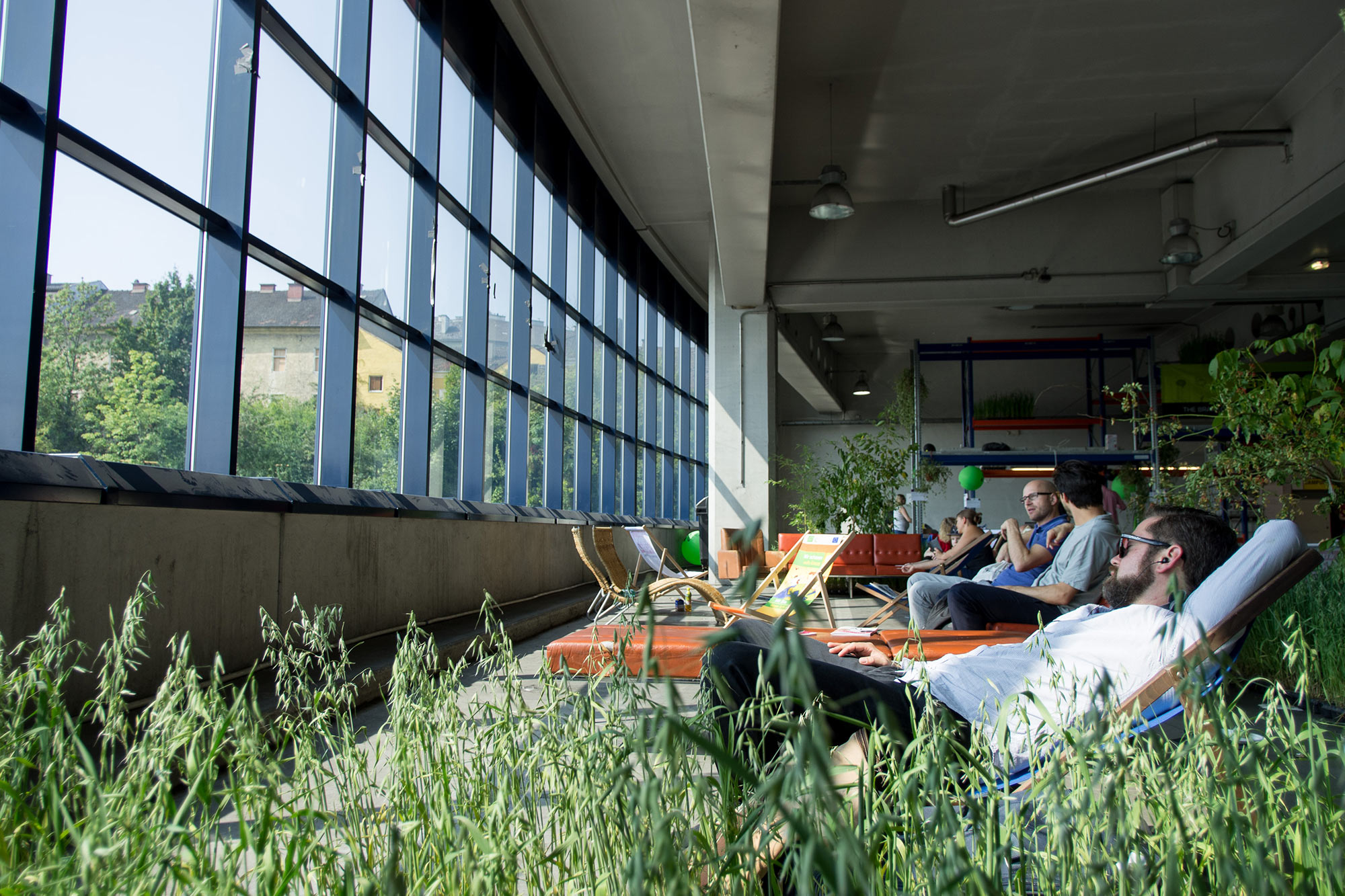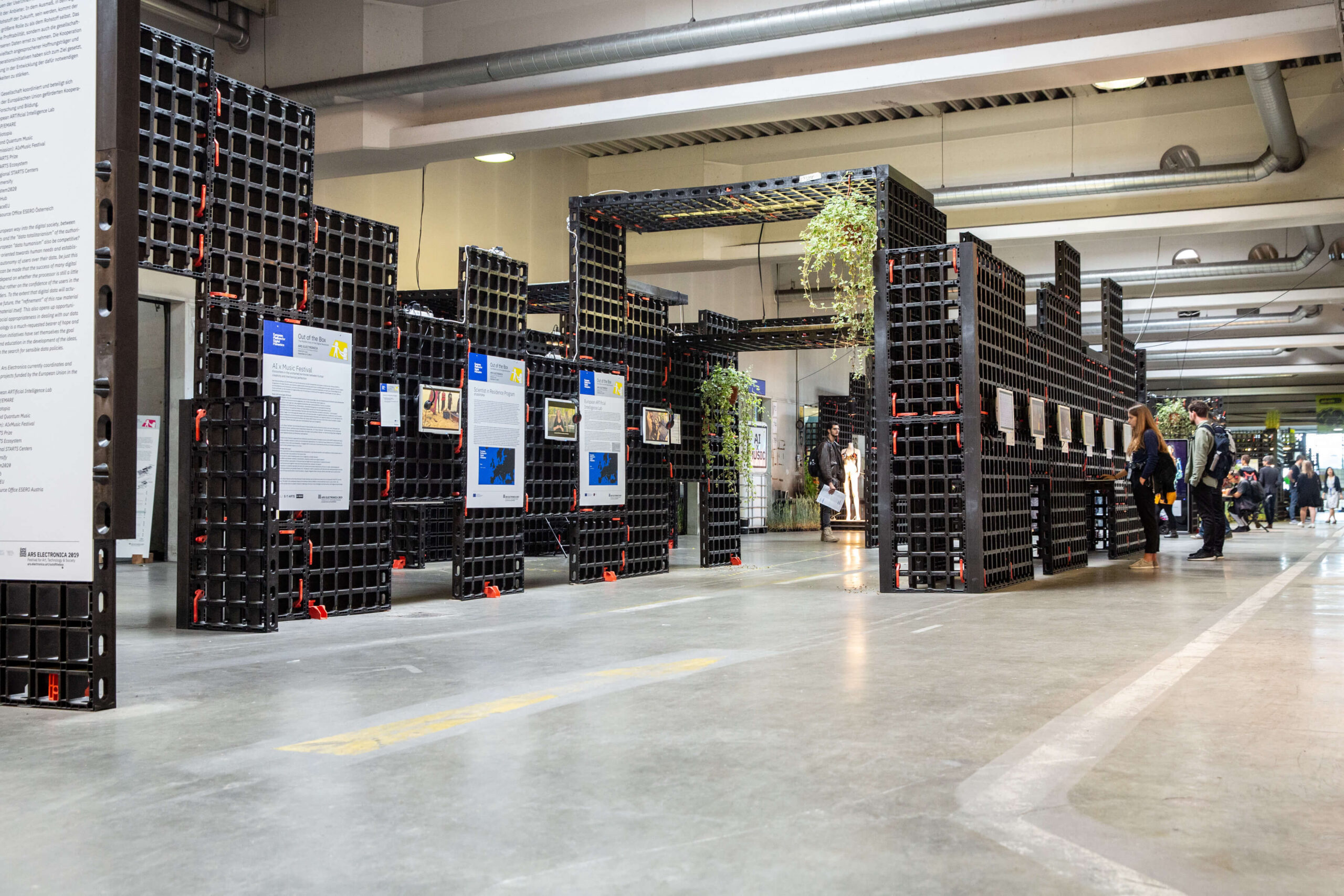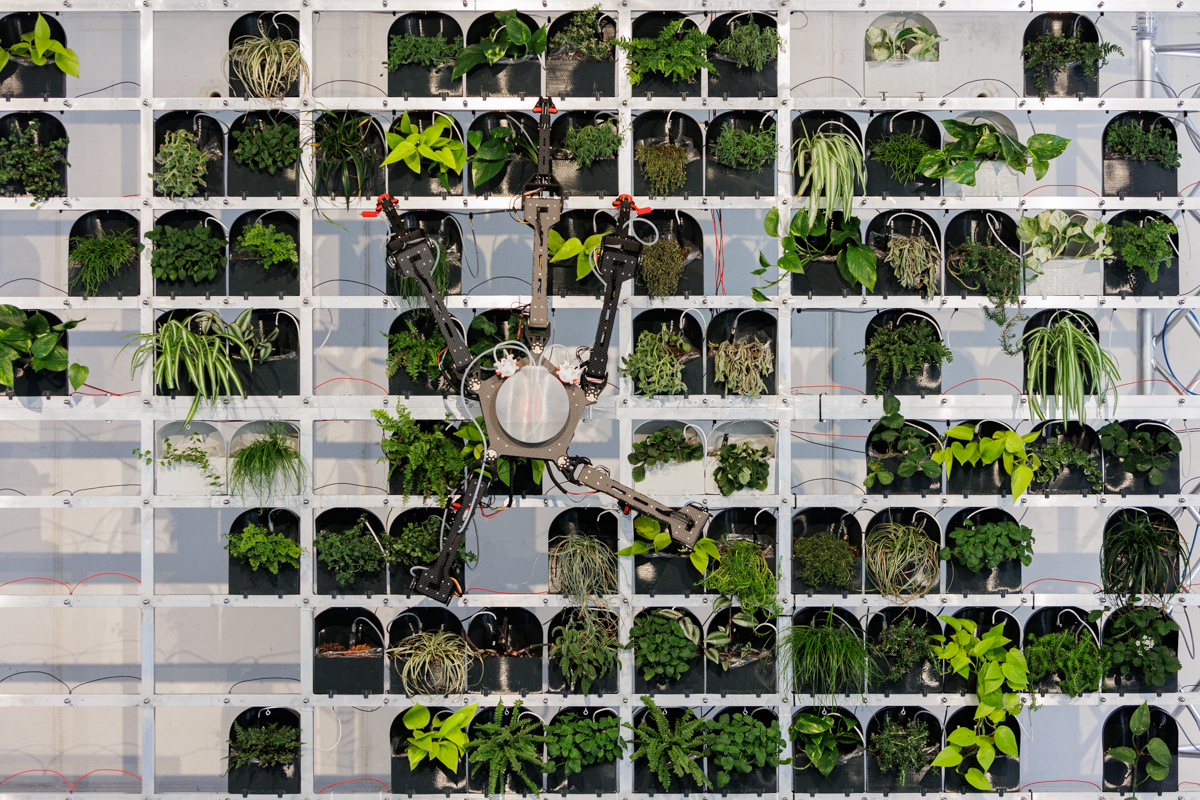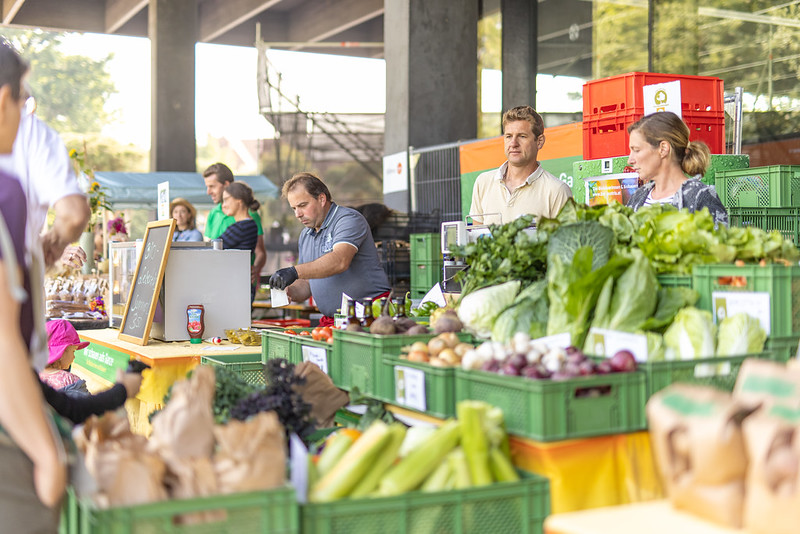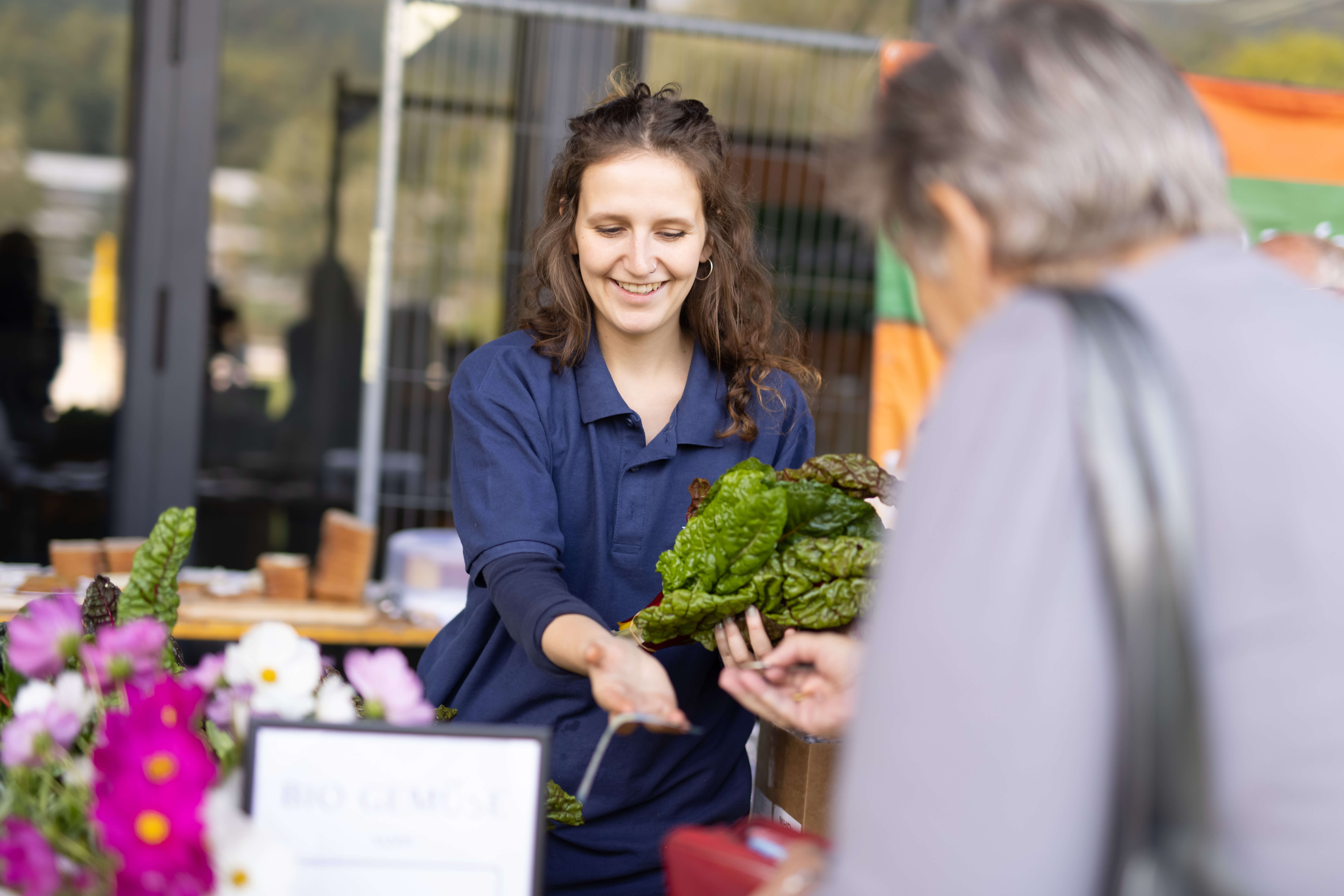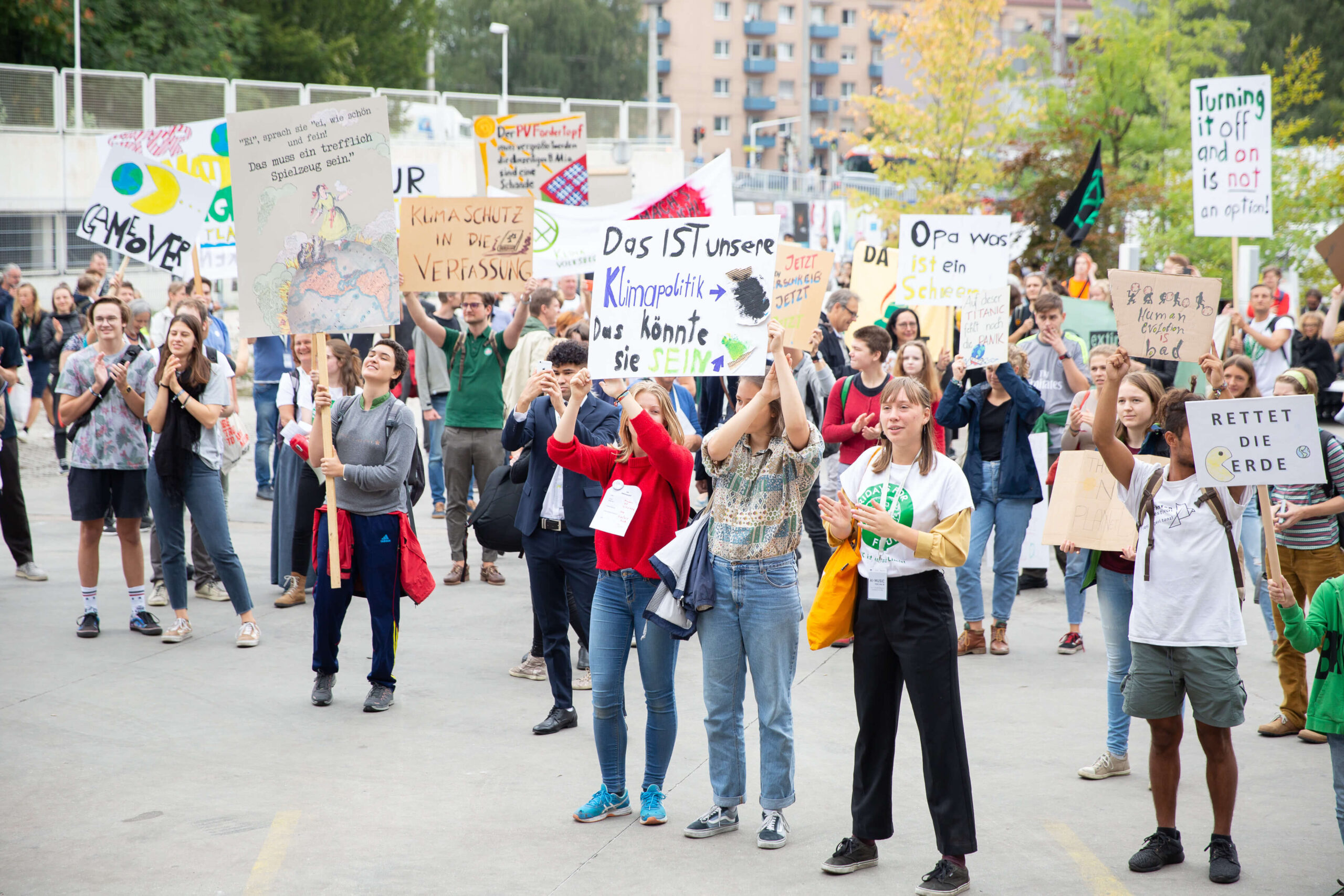The Ars Electronica Festival will once again be a ‘Green Event,’ certified by the Climate Alliance of Upper Austria. We are guided by the 17 sustainability goals set forth in the 2030 Agenda for Sustainable Development. To keep the CO2 footprint of the festival as low as possible, we have reflected on our internal processes, procedures and actions. Certain fields of action require particular thought, such as mobility, catering & food and event location (which includes energy, water, sanitation, technology and equipment, procurement & waste and social responsibility).
In this way, we not only seek to provide food for thought and raise awareness of sustainability, but also to create incentives for our visitors, artists and partners, which they may adopt independently in their actions; after all, only together can we bring about meaningful change.
Mobility
The Ars Electronica Festival has set itself the goal of reducing its ecological footprint. Sustainable event planning includes, among other dimensions, travel planning. Ars Electronica wants explicitly to avoid short-haul flights of less than 1,500 km and instead handle intra-European travel by train. Journeys with up to 10h travel time must be made in at least one direction by train, with shorter trips (3h each way) in both directions.
When rail travel is not practical or reasonable, alternatives may be arranged, whether because of physical and/or mental limitations, safety concerns, or complexity. Medium- and long-haul flights are compensated for by Ars Electronica depending on the CO2 emissions caused.
Event Location, Equipment and Technology
For event equipment and technology, we source materials that are environmentally friendly and minimize waste wherever possible. Elements of festival architecture are repurposed and returned to the material cycle after the festival for reuse. The green areas and plants at the festival locations are protected by taking precautions in advance, therefore no access can be given to the roof including its protected environment. Barrier-free accessibility to most festival areas and to all events is also ensured. Technical devices and equipment are rented from local companies.
Energy, Water & Sanitation
Being a guest at the festival venues, we are making an effort to be efficient and sustainable with the available resources. A proportion of the electricity used at the festival is obtained from renewable sources. We offer drinking water in the form of water dispensers around the festival area, and we are encouraging visitors to bring refill bottles. We also aim to minimize water consumption in production and provide information and campaigns on-site. In addition, we converted the Ars Electronica server to green electricity. To further minimize energy consumption, we are switching off event technology and lighting in the exhibition area outside of the exhibition operation.
Food & Catering
For food and catering, we primarily source seasonal and locally produced organic food and drinks. To support fair trade, we obtain non-regional food items such as coffee and tea from fair trade suppliers. We mostly provide meat-free dishes, such as vegetarian and vegan options, and meat dishes with ingredients from local farmers. Once again, the organic farmers market organized by Bio Austria is one highlight of the festival. In cooperation with local producers, we offer an Open Kitchen at the festival, where visitors can enjoy organic fruits and vegetables for free. For catering for employees during the festival, we distributed food vouchers, provided snacks and fruit at the workplace, and committed ourselves to using mainly seasonal and regional food from organic cultivation farming.
Materials, Procurement & Waste
A waste management concept is written for the event with the goal of minimizing waste. To achieve this, we use waste separation systems and provide additional temporary waste containers that are sorted and recycled by Linz AG based on our waste management concept. To reduce our environmental impact, we use re-usable tableware only.
The festival architecture is designed as a regenerative system, which aims to keep produced objects alive for as long as possible, by reusing and recycling them through various methods, thus reducing waste. This is a perpetual cycle in which existing materials and products are shared, borrowed, reused, repaired, refurbished, and recycled for as long as possible. We employ reusable systems in architectural elements, working scaffoldings and IBC Container. Additionally, we developed a modular exhibition architecture system in 2022 that can be stored in a space-saving manner, and thanks to a concept without drilling, the elements are reused unchanged in 2023 and in the years to come.
Large parts of the festival’s guidance system depend on the reusage of IBC Containers, a waste product from the food industry. After the festival those containers continue their purpose in a new environment, at the regional farms to feed and supply water to the animals.
We reduce printed materials as much as possible, avoiding giveaways and banning scattered advertising. Our festival catalog is produced in small print runs on eco-certified paper and is not individually packaged. Project lettering and prints are standardized and changed to eco-friendly materials (indoor/outdoor). In the area of procurement, we minimize the use of printed materials and used environmentally-friendly materials such as grass cardboard for project labels instead of decorative cardboard.
Social Responsibility
In addition to the aforementioned efforts, the festival also focuses on ensuring accessibility, and social participation including gender equality and diversity. A fair pay guideline was adopted in negotiations with artists and other festival participants in 2023, and a code of conduct for employees and partners is developed and applied. To raise awareness about sustainability, the festival features the Transformation Lounge as a physical representation at the center of the event. The sustainability strategy is communicated on site, and sustainability partners present their solutions.
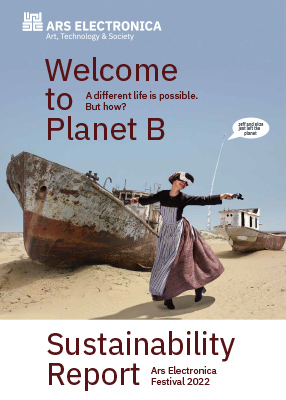
Sustainability Report 2022
Last year’s Ars Electronica Festival has been awarded the first prize as a Green Event in Austria. With this sustainability report, we aim to share our findings and insights with other cultural events, in the hopes of fostering a greater understanding and commitment to sustainability.

You have an idea how we can make the festival even more sustainable?
Let us know: festival@ars.electronica.art!

